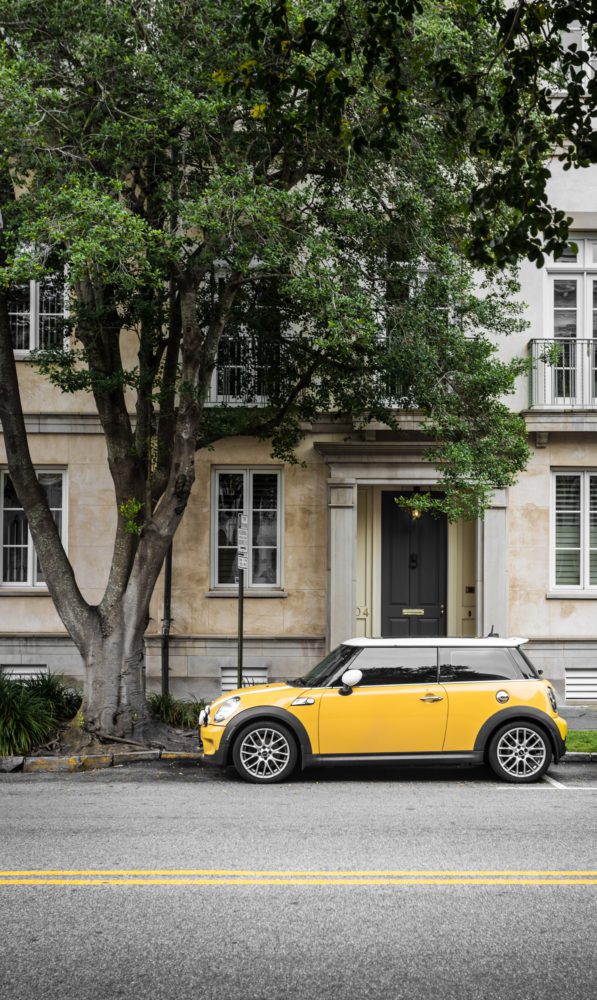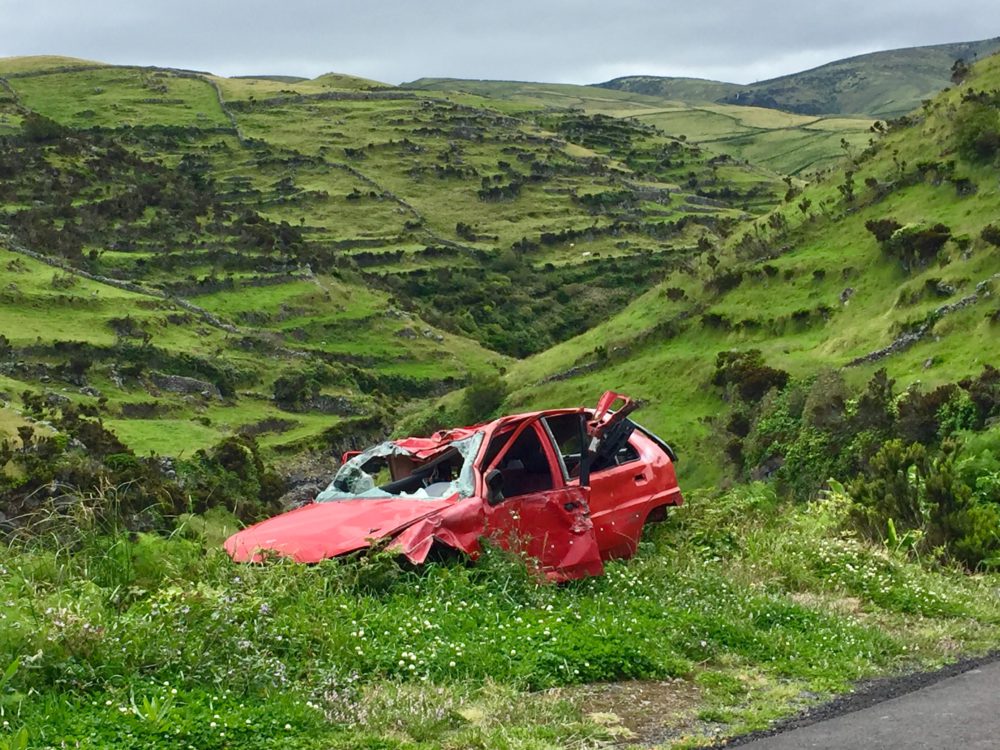We could talk about car insurance all day. But most people don’t. So it’s understandable that you might not know how it all works. Worry not. In just a few minutes you’ll have whipped through this blog and become a bit of an expert. And how good is that going to feel? Let’s find out…
Contents.
- What is car insurance?
- What kind of car insurance do I need?
- How do I get cheaper car insurance?
- How much does car insurance cost?
What is car insurance and why do I need it?
Car insurance gives you financial protection if you’re ever involved in an accident. In its most basic form (known as ‘third party’) it covers the cost of any damage you might cause to other people and their property while driving.
In theory, that means no-one is left out of pocket if someone else comes along and dents their beloved motor. Their insurer will pay for the careless driver – even if they can’t themselves. This only works if everyone has insurance, which is why it’s a legal requirement in the UK if you drive or own a car.
What is a SORN?
Your car needs to be insured at all times, even if you’re not using it. The only exception to this is if you make a SORN (Statutory Off Road Notification). This means the car won’t be taxed, insured, driven or left on a public road.
How do I get car insurance?
There are a number of ways you can get your car insured. Whether you go through an insurer directly, through a broker or use a price comparison site, they will all require certain details about you, your car and your driving history so that you can get a quote. Once you’re happy with the quote (always read the small print), you can buy and even start your policy on the same day.
What is a car insurance broker?
Essentially, they act as the middleman. If you don’t want to shop around, you can let them do the hard work for you. A car insurance broker will sift through the cover options for you, then present the best deals for you and your car.
You don’t need a broker, and they don’t work for free. Of course, if they get you a great deal they could work out cheaper – and easier – than doing it yourself. A broker must always put the driver first and cannot legally advise on behalf of a particular insurer.
Some so called ‘brokers’ are not what they seem – so be wary of scammers.
What type of car insurance do I need?
When it comes to car insurance, it’s always best to find cover that fully meets all of your specific needs. Going for the cheapest option doesn’t always help you save money in the long run. Sometimes – in fact, quite a lot of the time – less cover is actually more expensive.
That said, there are three levels of cover to consider:

What is third party insurance?
Third party covers everyone except yourself and your car. So if you’re involved in an accident, the insurance will pay out for any damage to other cars, and cover any injuries they may receive as a result, too.
The obvious drawback here is that there’s no cover for you or your car. If your wing mirror smooches a pillar in a multi-story carpark, you’ll have to pay to fix it yourself.
What is third party fire and theft insurance?
This covers any injuries that other people might receive in an accident, along with any damage done to their car. It also covers your car if, as the name suggests, it’s damaged by fire or is stolen. What it doesn’t cover is any damage done to your car when you’re at fault, or any injuries you may receive as a result of your own actions.
What is fully comprehensive car insurance?
As the name suggests, fully comprehensive cover will cover all bases. So that’s any injuries to yourself, your car or someone else’s car if you have an accident. It also protects you if your car is stolen or catches fire.
What is temporary insurance?
The clue is in the name. Temporary car insurance gives you cover for a limited amount of time. Policies can range from an hour to several months, depending on your requirements. Typically, you get fully comprehensive cover with temporary insurance.
What is pay-by-mile car insurance?
Naturally, it’s car insurance that you pay by the mile. Here at By Miles, you pay a fixed cost to cover the car while it’s parked, then just pay for the miles you drive after that.
You get comprehensive cover and the car is always insured, whether it’s parked up or being driven. That’s the big difference as compared to temporary insurance. When that’s over, it’s over – which could leave you uninsured (which is illegal).
How can I make my car insurance cheaper?
Unfortunately, there isn’t a hard and fast rule to make your car insurance cheaper. It’s all done on a case-by-case basis, depending on things like your car and driving history. But there are certain things you can do to ensure that you’re getting the best and most cost-effective cover for you.
Keep building your No Claims Discount.
While their benefits tend to plateau after you reach the eight-year mark, building your No Claims Discount year by year can help reduce your car insurance costs. Some insurers (By Miles included) offer No Claims Discount protection, so even if you end up making a claim, your No Claims Discount still won’t go down.
Alternatively, you can raise your voluntary excess. This will lower your premiums but will also mean you won’t claim for costs lower than the excess. As a result, your No Claims may go intact for longer. Generally, being a safe and conscientious driver will help you avoid ever needing to make a claim.

Shop around for the best price at renewal time.
Don’t stay loyal to your insurer just because it seems easier to do. Even though new rules have been introduced to stop insurers punishing loyal customers, it’s completely possible that there’s a better offer out there for you, so get looking early and don’t be afraid to switch insurers. Do some window shopping when it’s getting close to renewal time and put in the effort. It could end up saving you a decent amount of pocket money.
You’ll find tips on finding cheap car insurance here.
Avoid making modifications to your car, if you can.
The more changes you make to your car’s DNA, the tricker it is to repair and source spare parts for. Insurers can bump up the costs based on these modifications, so keep your car simple and easy to repair, if you don’t mind foregoing flashy mods.
Of course, if you’re adding features that boost safety and security, that could actually lower your premiums.
Get a dashcam or safety device for your car.
Some insurers may knock a little off your car insurance if you’ve got certain features that can help protect the safety of your car, or prove your innocence if a claim arises. Things like dash cams and steering wheel locks can work in your favour, so it’s worth checking if your insurer will offer a discount, should you install them.
Consider getting a policy that uses a telematics device.
Black box car insurance uses a telematics device that can reduce the cost of your car insurance. Depending on the policy, the box may monitor your driving. They’ll usually give you a driving score. This score – and therefore your price – depends on how you drive. It allows you to prove your worth as a good driver, and works especially well for younger drivers who may otherwise be faced with pricey policies.
At By Miles, our Miles Tracker measures the distance you’ve driven so that you can pay by the mile – but unlike the kind of cover described above, there are no driving scores at all. We’re simply focused on rewarding lower mileage drivers.
Only opt in for extras that you think you’ll need.
Insurers will offer you a list of extras to add onto your car insurance policy. They range from roadside assistance to legal cover and everything in between. Before you commit to them all, have a think about how likely you are to need certain extras. Think about your past experience and whether these extras would’ve helped – or just added to the bill without any benefit.
Avoid auto-renewing your car insurance policy.
Many insurers will automatically renew your policy when you reach its end date. Some may find this a convenient and stress-free experience, but you may not be getting the best deal. Always shop around to see if there’s a better alternative elsewhere. Convenience doesn’t always mean value.
Buy your policy online.
It’s not always the case, but the majority of car insurance policies are actually cheaper if you buy them online. You’re removing the middleman by bypassing customer service representatives, which can reduce the cost ever so slightly. Price comparison sites are your best bet when looking for a policy. Simply enter your details and you’ll be presented with a list of suitable options. Don’t be swayed by the cheapest option, though. Always read the small print and make sure your requirements are being met before committing to anything.
Try to pay for your insurance annually rather than monthly.
Although it can be a decent chunk of money, you’ll save if you opt to pay for your car insurance all at once. Monthly instalments can have interest rates and work out more expensive, although it’s a smaller amount than paying it all up front. Do your maths (the calculator app is your best friend) and make sure you’re getting the best deal.
Be a good driver!
It’s common sense, but the better the driver, the lower the car insurance (eventually). When you first start out driving, you still need to prove your worth and build your No Claims Discount. But as long as you stay safe and claim-free over time, insurers can see that you’re a safe bet, and offer lower quotes as a result. Stay safe, be smart and slow down.

How much does car insurance cost?
It’s a bit of a cop-out, but the shortest answer is that it depends on things like your driving history, type of car you drive and where you park it at night.
Competing car insurance companies will offer you different quotes based on how they perceive your risk as a driver. To get the best price, it’s worth checking out some comparison sites where you’ll be able to see your quotes from a list of different insurers. Just make sure you’re happy with the level of cover you’re being offered as well as the price. Those hidden extras can all add up – so do your research.




